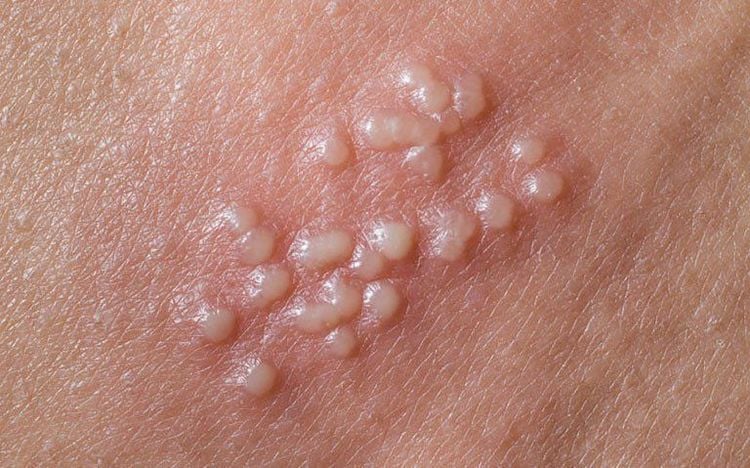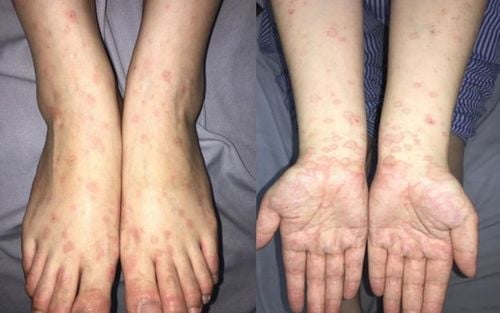Genital herpes is one of the sexually transmitted infections that we need to thoroughly understand. Knowing how the herpes virus is transmitted and how it flares up will help protect your own health and the health of those around you.
1. Symptoms and Causes of Genital Herpes
If you are infected with the herpes virus, you may feel itching or tingling around your genital area. This is often followed by small, painful blisters that break open, leaving open sores that may weep fluid or bleed. Most people notice symptoms within a few weeks after contracting the virus from someone else. The first time this happens, you may also have a fever, headache, or flu-like symptoms. Some people have few or no symptoms at all.
Genital herpes is usually caused by a virus called herpes simplex-2 (HSV-2), and HSV-1 can also cause it. You can be infected with HSV-2 from someone whether they show symptoms or not.
Typically, you become infected with herpes when you have vaginal, oral, or anal sex with an infected individual. In the U.S., about 1 in 5 adults has this condition. Genital herpes can spread through oral sex if you or your partner is infected. Since the virus cannot live long outside the body, you cannot catch it from objects like toilet seats or towels.
Sometimes people mistake pimples or ingrown hairs for genital herpes. A doctor can take a small sample from a sore using a swab test. If you have no symptoms but suspect you may have herpes, the doctor can do a blood test, and it may take a few days to get the results.

2. How Is Genital Herpes Treated?
If you have genital herpes, your doctor will prescribe antiviral medication. These pills can help you feel better and shorten the flare-up. While undergoing treatment, it’s best not to kiss or have sex with anyone else. Even without symptoms, you can still spread the virus.
Some people only take medication if they feel itching or tingling that signals a flare-up is coming or when sores appear, to prevent worsening. Your doctor may recommend taking antiviral medication daily if you:
- Have multiple flare-ups;
- Want to prevent more flare-ups;
- Want to reduce the risk of passing it on to your partner.
3. Have multiple flare-ups;
Want to prevent more flare-ups;
Want to reduce the risk of passing it on to your partner?
The herpes virus remains in your body forever, even if you have no symptoms. You might have flare-ups when you are sick, after sun exposure, or when stressed and tired. During a genital herpes flare-up, you can wear loose-fitting clothes and cotton underwear; avoid sun exposure or heat that could cause more blisters; bathe in warm water gently, and avoid perfumed soaps or douching near the blisters.
You can still have sex when you have genital herpes, but you must inform your partner so they can get tested. Since it’s a sexually transmitted disease, use condoms and avoid sex during flare-ups.
People generally do not experience serious problems from genital herpes, but there is still a possibility. You are advised to wash your hands often, especially during a flare-up. If you touch a blister and rub your eyes, the infection can spread to your eyes. If your eye is red, swollen, painful, or sensitive to light, see a doctor. Treatment can help prevent serious vision problems.
If you are pregnant and have genital herpes, your doctor might recommend a cesarean delivery if you have a flare-up around the time of birth. Giving birth vaginally can pass the herpes virus to the baby, especially if it’s your first flare-up near delivery. The virus can cause the infant to have rashes, eye problems, or more serious issues. Your doctor might also advise taking antiviral medication starting at about 34 weeks to avoid a flare-up near the due date.

4. How to Avoid Getting Genital Herpes
As long as you are sexually active, there is always a chance of getting genital herpes. You can greatly reduce your risk by using condoms or dental dams every time.
If you don’t have genital herpes, you and your partner should be tested for STDs before having sex. If both of you are clear and do not have sex with anyone else, you will be safe.
To arrange an appointment, please call HOTLINE or make your reservation directly HERE. You may also download the MyVinmec app to schedule appointments faster and manage your reservations more conveniently.













